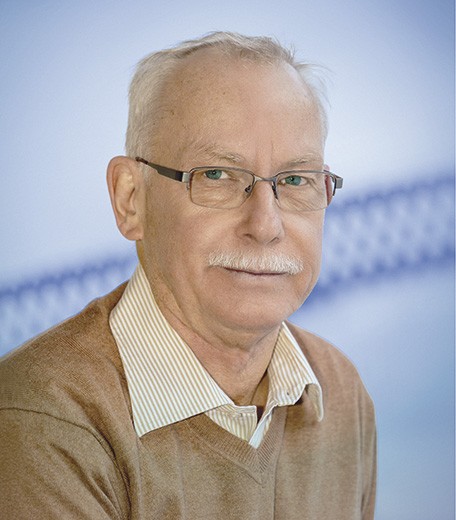Download
Acceptance speech
F. Ulrich Hartl
F. Ulrich Hartl (Essen, Germany, 1957) earned an MD from the University of Heidelberg in 1975 and a PhD from the same institution in 1985. He then completed postdoctoral fellowships in the Institute of Physiological Chemistry at Ludwig Maximilian University of Munich and the Molecular Biology Institute at the University of California, Los Angeles. In 1990, he obtained his postdoctoral Habilitation with a dissertation on the topogenesis of mitochondrial proteins. Back in the United States, he spent six years working on the Cellular Biochemistry and Biophysics Program of the Memorial Sloan Kettering Cancer Center, where he was also William E. Snee Chair and a Howard Hughes Medical Institute Investigator, and served as Associate and later Full Professor of Cell Biology and Genetics at Cornell University. Hartl returned to Germany in 1997 to head the Department of Cellular Biochemistry at the Max Planck Institute of Biochemistry, where he is now Director.
In 1972, Christian Anfinsen won the Nobel Prize for a series of experiments that found that some small proteins folded spontaneously in a test tube. His work established the idea, later disproved by Hartl and Horwich, that all proteins folded spontaneously, even within the cell.
In the 1980s, Hartl and Horwich were separately studying how proteins get into the cell compartments known as mitochondria, which are enclosed within a membrane. They were the first to question the hypothesis of spontaneous protein folding inside cells.
An experiment by Horwich on a mutant yeast strain seemed to show that certain proteins crossed the mitochondrial membrane correctly but, once inside, showed no signs of activity. Hartl’s lab confirmed this result, initiating a productive collaboration between the two scientists which led them to the discovery that the protein Hsp60 (Hsp standing for heat shock protein) was responsible for ensuring that protein folding happened correctly. That is, it acted as a chaperone for the proteins. Hartl and Horwich published these conclusions in Nature in 1989.
They confirmed that the chaperone acts by encapsulating the protein to isolate it from the environment. They also observed that, in single-celled organisms like the bacteria Escherichia coli or yeast itself, lack of Hsp60 caused an aggregation of unfolded proteins that led to their death. In spite of the initial skepticism, Hartl and Horwich definitively ousted the prior view of protein folding in the cell.


